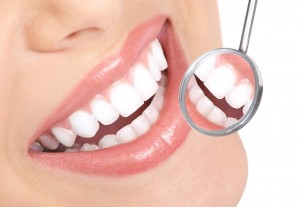
If only you knew just what exactly is happening inside your mouth every day, you probably wouldn’t need to be reminded, nor wonder, why it’s important to get your teeth cleaned every six months.
You see, brushing and flossing alone aren’t enough to keep your teeth clean and healthy, and to further convince you, here are five reasons why you need to visit the dentist every six months:
- It’s the best way to prevent oral cancer. Or, at the very least, make sure that it’s diagnosed as early as possible. Remember, just like with any form of cancer, your survival rate increases dramatically the sooner it is diagnosed. If you frequently drink alcohol or smoke tobacco, then it’s even more important to have your mouth checked every six months for signs of oral cancer.
- For the prevention and treatment of oral infection. Contrary to popular belief, normal and healthy mouths do not and never will bleed when flossing or brushing. If it does, then either there’s wrong with your mouth, or the way you brush your teeth. Chances are, it’s more of the former. This is true even if you think that it’s normal for your gums to bleed after a round of dental cleaning. Bleeding teeth and gums are one of the earliest signs of gum disease, which can lead to tooth loss and other complications if not treated early. So, the next time you brush and floss your teeth, and it bleeds, take note of it and tell the dentist. Although it probably shouldn’t hurt to try and switch to another toothbrush with soft bristles, or to not brush your teeth as aggressively as before.
- No more bad breath. Sure, it’s normal for the mouth to not always smell minty fresh. But, for your breath to stink regularly, sometimes to the point that it affects your sense of taste, isn’t exactly what you’d call normal. That actually is a telltale sign of an oral infection, something that only your dentist can treat. Even if this hasn’t happened to you yet, this should give you even more of a reason to visit the dentist.
- Lowered risk for dental problems. Although dentists recommend paying them a visit every six months to lower one’s risk for dental problems, some people actually need to have their teeth cleaned much more often. And, how exactly would you know how often you need to visit the dentist if you don’t even visit them regularly in the first place?
- To keep your teeth white and healthy. It may sound superficial, but we tend to judge other people based on what we see first, which usually is the smile – or at least, the lack thereof. By visiting the dentist regularly, you can keep your teeth looking shiny and healthy, allowing you to smile way more often without being so conscious, giving your self-esteem a much-needed boost.
Let Dr. Kirtley help you to prevent gum disease and keep your teeth looking pretty so you never have to worry about those things ever again. Call for an appointment at 317-841-1111. Learn more about our practice by visiting our website at www.smilesbygeorge.com.

